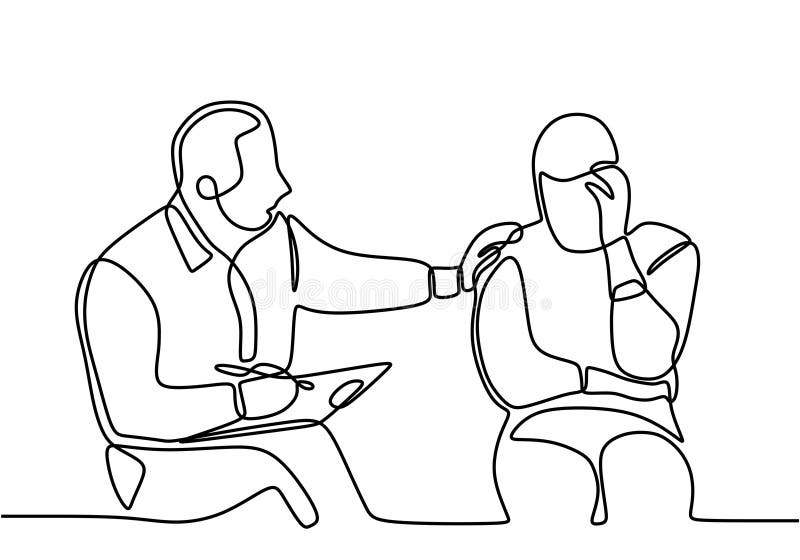Your Path to Recovery: Insights from the Best Psychologist in Delhi
Your Path to Recovery: Insights from the Best Psychologist in Delhi
Blog Article
Psych Therapy: A Comprehensive Overview to Results and strategies

Cognitive-Behavioral Therapy
Cognitive-Behavioral Treatment (CBT) is a widely utilized psychotherapeutic strategy that concentrates on recognizing and modifying inefficient reasoning and actions patterns. Developed in the 1960s by Aaron T. Beck, CBT integrates behavior and cognitive concepts to address various mental wellness issues, including anxiety, stress and anxiety, and stress-related conditions.
CBT is defined by its structured, ambitious nature. Therapy generally involves a joint process between the specialist and client, where specific troubles are determined, and practical approaches are established to address them. Strategies such as cognitive restructuring, exposure treatment, and skill-building exercises are generally utilized. Cognitive restructuring involves difficult and altering unfavorable thought patterns, while direct exposure treatment aims to lower concern and anxiety through steady exposure to been afraid scenarios or objects.
Evidence-based research study sustains the efficiency of CBT for a large range of emotional disorders - Best Psychologist in Delhi. Its emphasis on skill purchase and self-help strategies empowers clients to proceed progression individually after therapy concludes. The versatility and efficiency of CBT have actually made it a keystone in modern psychotherapeutic technique
Psychodynamic Strategies
Rooted in the early theories of Sigmund Freud, psychodynamic approaches concentrate on exploring the unconscious mind and its impact on habits and feelings. These techniques intend to reveal hidden ideas and sensations that might be driving maladaptive actions and emotional distress. Central to this approach is the principle of internal dispute, commonly originating from unsolved previous experiences, specifically those from childhood years.
Therapists making use of psychodynamic strategies utilize a number of essential methods, including free organization, where people are motivated to speak freely to disclose subconscious material, and desire analysis, which interprets the latent web content of desires. Additionally, the expedition of transference and countertransference dynamics within the healing connection is important. These interactions can give insights into the person's interior globe and relational patterns.
Psychodynamic therapy is usually longer-term contrasted to various other modalities, offering a thorough and deep understanding of the individual's psyche. Study indicates that it can be specifically efficient for intricate mental wellness problems, such as individuality conditions and persistent anxiety. By cultivating self-awareness and emotional understanding, psychodynamic therapy looks for to bring subconscious material to awareness, enabling individuals to attain long lasting and purposeful change in their lives.
Humanistic Strategies
Building on the foundations laid by psychodynamic strategies, humanistic techniques use a distinctive perspective concentrated on specific potential and self-actualization. Coming from the mid-20th century, these strategies focus on the fundamental goodness and development possibility of people, emphasizing an alternative sight of human experience. Trick numbers such as Carl Rogers and Abraham Maslow have actually significantly influenced this therapeutic method, which includes approaches like client-centered treatment and Gestalt treatment.
Client-centered therapy, developed by Rogers, plays an essential duty in humanistic strategies. It relies upon the therapist offering an atmosphere of genuine favorable respect, empathy, and congruence. This promotes a risk-free area for customers to explore their feelings and experiences without judgment, assisting in self-discovery and individual development. The therapist's function is more of a facilitator than an authority, encouraging clients to harness their internal sources for recovery.
Gestalt therapy, another vital humanistic strategy, stresses existing moment awareness and the assimilation of mind and body. By concentrating on the "present moment," customers obtain higher insight into their existing emotions and habits. Strategies such as role-playing and directed visualization are often employed to assist clients get a deeper understanding of themselves, ultimately bring about enhanced self-awareness and gratification.
Integrative Therapies
Integrative therapies represent a synthesis of various healing methods tailored to fulfill the unique requirements of each customer. This strategy recognizes the intricacy of human psychology and the multifaceted nature of psychological wellness issues. By investigate this site integrating aspects from various schools of psychiatric therapy-- such as cognitive-behavioral therapy (CBT), psychodynamic treatment, and humanistic techniques-- integrative treatments supply an even more alternative and flexible therapy paradigm.
Professionals of integrative therapy assess each customer's particular demands, signs and symptoms, and individual background to create a tailored treatment plan. This customized approach improves the potential for therapeutic success by dealing with the origin of emotional distress and promoting total health. Methods may include mindfulness exercises, cognitive restructuring, and emotional processing, each selected to target different facets of the customer's concerns.
In addition, integrative treatments stress the therapeutic relationship, viewing the client-therapist bond as a crucial part of efficient treatment. This connection promotes a supportive setting where customers feel safe to discover and address their worries. The flexibility of integrative treatments makes them appropriate for a wide variety of problems, including stress and anxiety, clinical depression, injury, and social troubles, consequently raising their applicability and effectiveness in varied medical setups.

Determining Therapy Results
Assessing the efficiency of psychotherapy is essential for both medical professionals and clients to guarantee that the treatment is generating the wanted end results. To accomplish this, different approaches and devices are employed to gauge therapy results systematically. Standardized evaluation instruments, here such as the Beck Anxiety Inventory (BDI) and the Generalized Anxiousness Problem 7 (GAD-7), give quantitative information on sign extent and adjustments with time.
In addition to standardized devices, qualitative techniques like client self-reports and professional interviews use valuable understandings into the individual experiences and regarded progression of customers. Routinely arranged analyses, typically at the beginning, axis, and end of therapy, assistance in tracking the trajectory of improvement or determining locations needing adjustment.
End result measurement is not restricted to signs and symptom decrease; it additionally incorporates practical enhancements in every day life, such as Discover More better interpersonal relationships, enhanced work performance, and improved general health. Modern advancements in electronic health and wellness have presented mobile applications and online platforms that facilitate real-time monitoring and comments, better improving the evaluation process.
Eventually, an extensive approach to measuring treatment outcomes makes sure that therapeutic treatments are effective, effective, and tailored to satisfy the specific requirements of customers, consequently enhancing the general restorative experience.
Final Thought
Humanistic techniques focus on personal growth and self-actualization, while integrative treatments integrate numerous techniques for tailored treatment strategies. Reviewing therapy outcomes through qualitative methods and standardized analyses ensures a detailed understanding of effectiveness, inevitably guiding clients toward sustaining mental health and wellness improvements.
From the structured strategy of Cognitive-Behavioral Therapy (CBT) to the deep exploration of the unconscious in psychodynamic therapy, each technique brings unique benefits. Its focus on skill procurement and self-help techniques encourages clients to continue progress independently after therapy wraps up (Best Psychologist in Delhi). Secret numbers such as Carl Rogers and Abraham Maslow have actually dramatically influenced this healing strategy, which includes approaches like client-centered treatment and Gestalt treatment

Report this page